| 1. Manual digging did the magic | 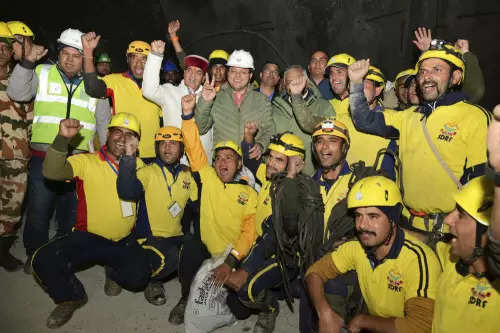 | Rescue op complete- Rescue workers pulled out all 41 workers trapped in Uttarakhand's Silkyara tunnel in a multi-agency rescue operation that hovered between hope and despair over almost 17 days.
- Union minister VK Singh and Uttarakhand CM Pushkar Singh Dhami welcomed the workers as they were brought out through a steel chute that lined a 60-metre escape passage.
How it happened- Rescuers had drawn up multiple plans. The first plan was to drill through the debris from the mouth of the tunnel. Machines were used to drill through but after several setbacks, the so-called rat miners were employed.
- The second plan was to drill vertically through the hill above the tunnel. But this required drilling 86m to reach the workers. The work had begun and rescuers calculated it would take four days in the operation if they met no obstacles. Special drills had been brought to the site for this. But it was not needed.
The last stretch- When heavy machinery broke down, authorities called in a group of people whose profession is effectively banned in the country — "rat-hole mining".
- The augur machines had horizontally drilled through nearly three-quarters of the debris before it fell on half a dozen miners to reach the trapped workers.
- The "rat miners" started working late on Monday with 15 metres out of 60 metres still left to reach the trapped men.
- They worked in two teams of three each, with one person drilling, the second collecting the debris and the third pushing it out of the pipe.
- Rescuers successfully pulled out the workers in wheeled stretchers through a wide pipe that was pushed through the debris after a 17-day ordeal.
Praise and promise- President Droupadi Murmu, PM Narendra Modi and other political leaders hailed the successful rescue operation
- Modi wrote on X, "Everyone involved in the mission has created an amazing example of humanity and teamwork."
- Union Road Transport and Highways Minister Nitin Gadkari said a "safety audit of the tunnel will also be done now". All updates here
| |
|
|
|
| 2. 'Why are you stuck with only one person?' |  | A proposed extension- The Centre on Tuesday submitted in the Supreme Court that it wanted to extend the tenure of the Delhi chief secretary who is due to retire on November 30.
- But the Delhi government objected to the proposal and asked for a new officer to be appointed in consultation with CM Arvind Kejriwal.
'Make a fresh appointment'- The apex court on Tuesday asked the central government to inform it today about the grounds on which it wanted to extend the tenure of Delhi current chief secretary Naresh Kumar by six more months.
- It also asked why the Centre was "stuck" with only one name, even as the bench headed by Chief Justice DY Chandrachud suggested that Kumar should be allowed to superannuate and a fresh appointment should be made.
'Why stuck?'- As Solicitor General Tushar Mehta said that the term of a superannuated officer can be extended if the government so wishes, the CJI said, "Are you stuck with only one person?... You want to make the appointment, make it. Don't you have any IAS officer who can be made chief secretary of Delhi? Are you so stuck on one IAS officer?,"
- The bench further said: "Show us the power to extend. And show us what is the ground on which you want to extend."
- At the same time, the bench also noted that the Centre held the power under the Government of National Capital Territory of Delhi (Amendment) Act to make the appointment and there was no stay on it.
A dispute- The AAP-led government in Delhi and the Union government have been at loggerheads for a while over the appointment of Delhi's new chief secretary.
- The AAP has accused the current chief secretary of corruption, which the Centre has termed as a case of "mudslinging" against the IAS officer.
Previous hearing- The Supreme Court had on November 24 asked the Centre to suggest names of five senior bureaucrats to be considered for the post of Delhi's chief secretary by 10.30 am today and directed the Delhi government to respond the same day to facilitate adjudication on the vexed issue.
| |
|
| 3. Who's keeping the pot boiling over bodies in Manipur? | 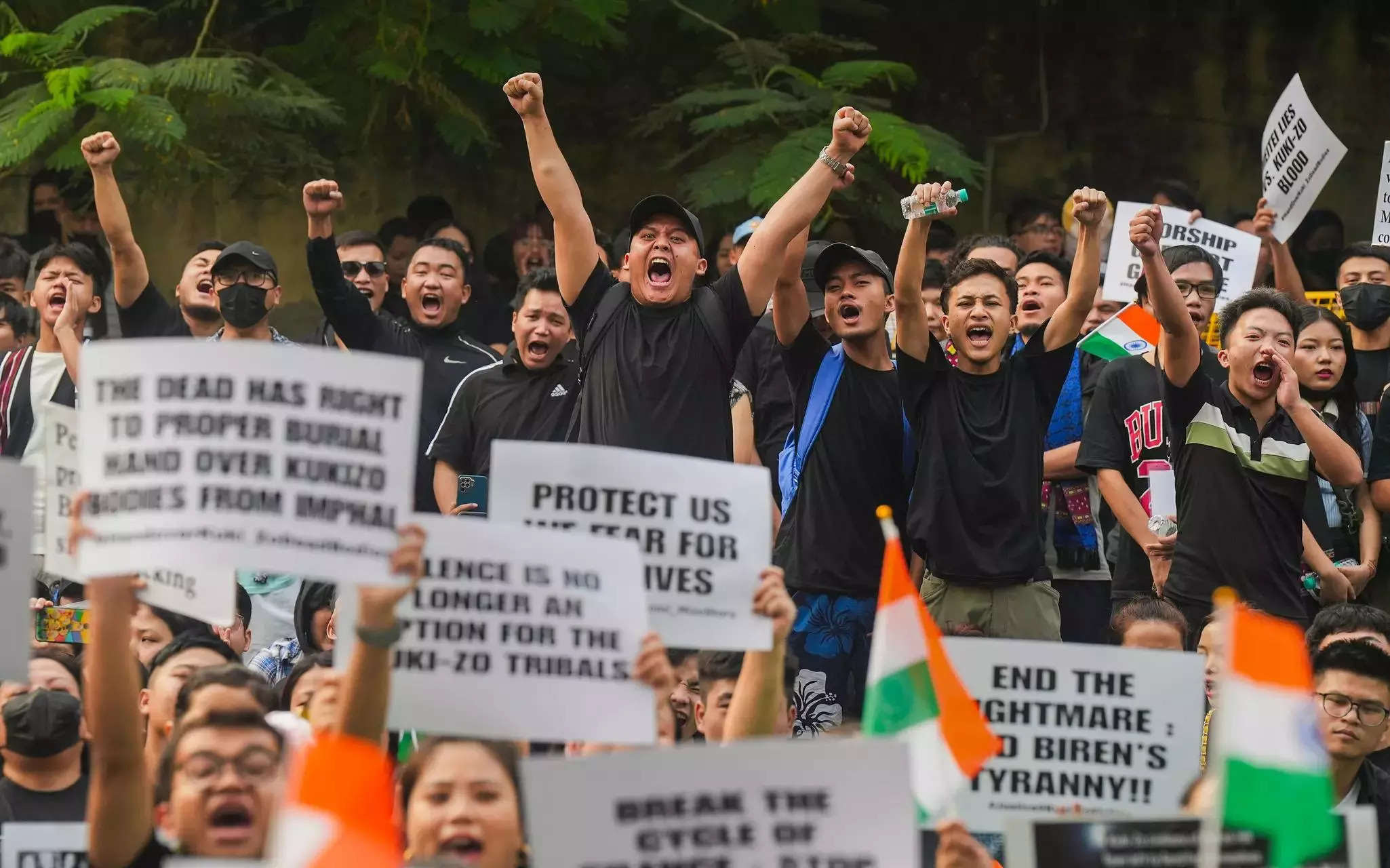 | What- Scotching attempts by certain civil society organisations to fuel ethnic tension by preventing relatives from claiming bodies of persons killed during Kuki-Meitei conflict, the Supreme Court on Tuesday ordered the state government to dispose of the bodies stored for months in mortuaries, if the relatives did not claim the bodies in two weeks for last rites at nine earmarked sites.
- "We do not want to keep the pot boiling over dead bodies," said a CJI DY Chandrachud-led bench, which was disturbed by the Supreme Court-appointed committee's report which flagged that civil society organisations in the northeastern state are preventing relatives from claiming 88 out of 94 bodies stored at mortuaries since May.
A direction- The SC also directed the collectors and superintendents of police in the districts, where the nine sites for burial and cremation have been earmarked, to facilitate the relatives to carry out the last rites of the bodies without any "hindrance by any group or person". It also asked them to take all steps to maintain law and order in their jurisdictional area.
'Facilitate burials'- While directing dignified disposal of six unidentified bodies by the state within a week, the bench asked the state to inform relatives of each of the identified bodies by Monday and facilitate them in reaching the mortuary for collecting the bodies, taking these to earmarked burial and cremation sites and facilitate carrying out the last rites as per their religious custom.
- However, it clarified that if the relatives do not claim the bodies despite intimation, the state would be free to bury or cremate the unclaimed bodies a week after the intimation given to the next of kin.
| |
|
| 4. Why Bihar school holidays have triggered a political row | 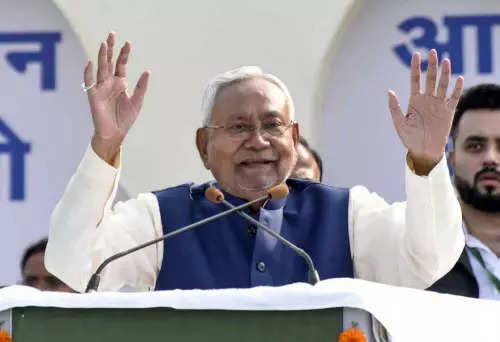 | What- The BJP mounted a sharp attack on the Nitish Kumar government in Bihar on Tuesday over the proposed holiday calendar for 2024, with the party's Rajya Sabha member Sushil Modi, the former deputy chief minister, calling it "an assault on Hindu sentiments".
- This is about an education department communication announcing a revised holiday calendar screenshots of which were shared on social media.
The official version- The education department said the calendar has to be followed by "all schools run or aided by the government, at primary, upper primary and secondary levels".
- It said the calendar is aimed at ensuring that classes are held for at least 220 days in the year, in accordance with the RTE Act.
The charge- Sushil Modi alleged that holidays on Ram Navami and Janmashtami have been done away with and, on the other hand, the number of days requiring schools to remain shut for Muslim festivals has been increased.
- "Schools in Muslim-majority areas have been allowed to have weekly offs on Friday. On the other hand, Hindus have been asked to make do without holidays on aforementioned festivals as also Raksha Bandhan, Maha Shivaratri and Anant Chaturdashi. Chief Minister Nitish Kumar and his associates think they can divide Hindus along caste lines and get away with Muslim appeasement," he said.
A counterattack- Mahagathbandhan leaders hit back accusing BJP of misleading people on the issue, even as they admitted that the ruling coalition did not approve of the education department's move and would like it to make amends.
- JD-U's Ashok Chaudhary, the former education minister, said, "The department should have accepted traditions. I am sure once the matter comes to the notice of the chief minister, he will ensure that amendments are made, just like he did in the past."
- A similar cut in holidays notified by the education department in August was withdrawn after widespread protests by teachers.
Also...- Union minister Nityanand Rai called the move a "well-planned conspiracy to drive the state towards Islamisation".
- Ruling RJD's Shakti Yadav said, "Nobody has been deprived of holidays on Dussehra, Diwali, Holi and Chhath. The department should reconsider declaring a holiday on Raksha Bandhan."
| |
|
| NEWS IN CLUES | | 5. Identify this political leader | Clue 1: He has been a journalist and trade union activist before he joined politics
Clue 2: He is an MLA in a western state
Clue 3: He came to prominence during protests against the flogging of seven Dalit men in Una in 2016
Scroll below for answer
| |
|
| 6. 'Don't be so narrow-minded' |  | What- The Supreme Court rejected on Tuesday a plea that sought a complete ban on artistes from Pakistan to perform or work in India.
- The plea, filed by Faaiz Anwar Qureshi, sought a complete ban on various interactions with Pakistani artistes, including employment and performances.
A word of advise- Upholding the Bombay High Court's decision, Justices Sanjiv Khanna and SVN Bhatti urged the petitioner not to be "narrow-minded" as the bench declined to expunge remarks made by the high court against the petitioner.
- The top court also refused the submission to expunge certain remarks made by the high court against the petitioner.
A ruling- The high court had last month dismissed the petition, deeming it a retrograde step against cultural harmony.
- "One must understand that in order to be a patriot, one need not be inimical to those from abroad especially, from the neighbouring country," the court had said.
A case for consideration- The high court said that arts, music, sports, culture, and dance transcend nationalities and contribute to peace, unity, and harmony within and between nations.
- It cited India's positive steps in allowing Pakistan's participation in the Cricket World Cup as an example of promoting overall peace and harmony.
- The high court cited Article 51 of the Constitution of India, emphasising the government's role in promoting international peace and security.
Also, what ban?- In September 2016, the Indian Motion Picture Producers Association and the All Indian Cine Workers Association decided to ban Pakistani actors from the industry after the Uri attack.
- To be sure, these were not bans imposed officially through government notifications. But several Pakistani actors complained about difficulties in getting Indian visas after that. It is to be seen whether the recent court rulings would change things on this front.
| |
|
| 7. First auction of mineral blocks today | 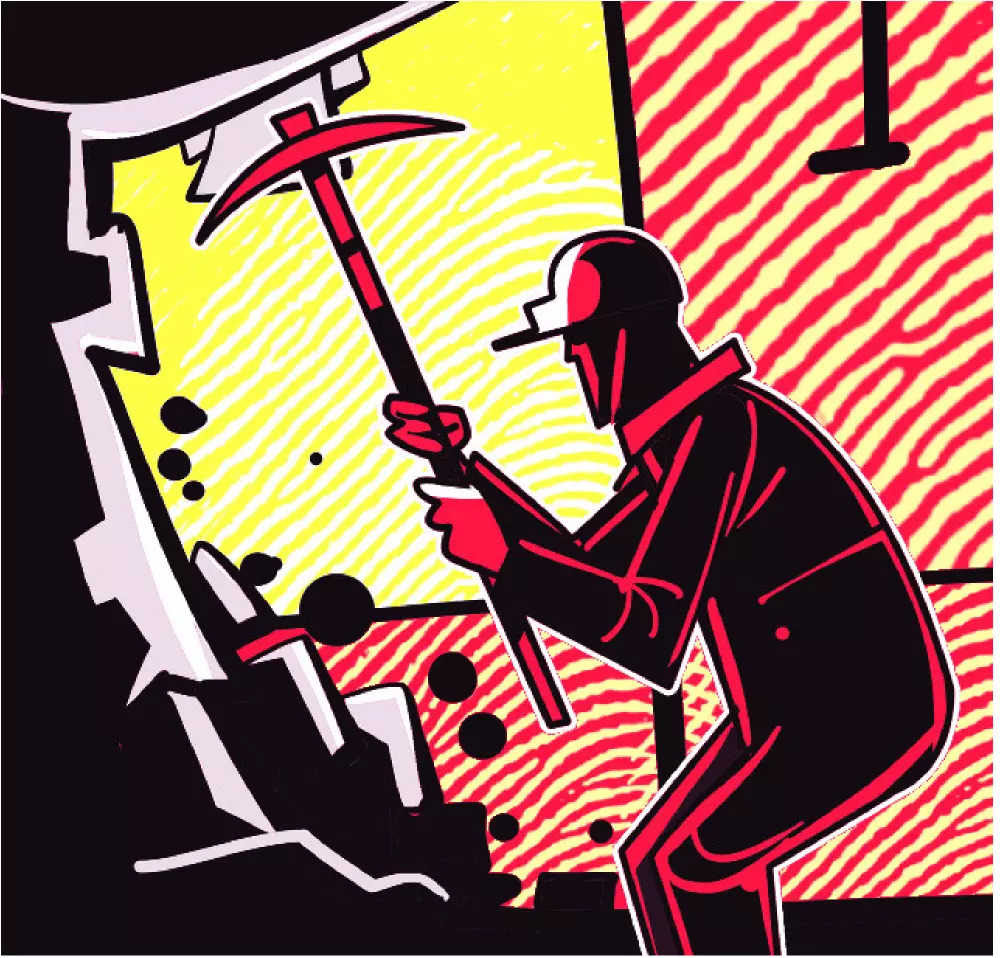 | A first for India- India for the first time today will invite bids for 20 critical mineral blocks, including lithium and graphite.
- The auction of the blocks strategically spread across the country will be conducted online using a two-stage ascending forward auction process, which is supposed to ensure transparency, fairness and accessibility.
Why it matters- Critical minerals are the minerals that are identified to hold significant importance due to the potential risk of supply shortage and their impact on the economy.
- They are vital for sectors such as renewable energy, defence, and agriculture.
- The future global economy heavily relies on technologies dependent on minerals like lithium, graphite, cobalt, titanium, and rare earth elements (REE).
- Their scarcity or concentration in a few countries makes the supply chain vulnerable, impacting economic development and security.
Economic boost- This is not only seen to boost economic development but also a part of the nation's strategy to ensure adequate domestic resources of essential raw materials crucial for powering the green energy transition.
Energy transition goals- India aims to achieve 50% cumulative electric power installed capacity from non-fossil sources by 2030, driving demand for electric vehicles, renewable energy, and battery storage systems.
Mining reforms- In July, India amended mining rules to encourage exploration of critical minerals, allowing private miners to search for materials.
- Key lithium blocks in Jammu and Kashmir and Karnataka will be auctioned.
- In October, India's cabinet approved royalty rates for critical minerals, including lithium, Niobium, and rare earth elements (REE).
Demand and supply- The increasing demand for lithium, nickel, cobalt, and other metals in lithium-ion batteries highlights the urgency of securing a stable supply chain.
| |
|
| 8. Pause gives more breather for relief agencies in Gaza |  | Six-day truce in 7-week war- A truce between Israel and Hamas in the Gaza Strip was on Monday extended to six days. Aid agencies are using the pause in fighting to ramp up aid deliveries into Gaza.
- Under the terms of the deal, more aid is flowing into Gaza, with the first deliveries shipped to the north, providing relief to residents cut off from outside help for over a month during the Israeli military campaign.
Is it enough?- Aid agencies say it is not enough to meet the needs and the WHO has warned that disease could kill more people than bombs.
- The World Food Programme "reiterates that a six-day long pause is not enough to make any meaningful impact".
Millions displaced- Around 1.8 million people of Gaza's population of 2.3 million are estimated to be internally displaced.
- About 1 million are staying in UN's shelters run by its Palestinian refugee agency (UNRWA), according to the UN humanitarian office (OCHA).
- Shelters are overcrowded and at more than four times capacity, with tens of thousands of civilians having fled south to escape the bulk of Israeli bombardments in recent weeks.
What about hospitals?- The WHO says that nearly three-quarters of hospitals, or 26 out of 36, have shut down entirely in Gaza due to bombing or lack of fuel.
- Aid groups have evacuated patients and health workers from some of those hospitals during the truce and further transfers are planned in coming days, OCHA says.
Aid supplies- The Rafah crossing into Egypt reopened for limited aid supplies on October 21 and all other crossings into Gaza remain shut.
- Daily truck deliveries into Gaza since the truce began are about 200 a day, which is more than double the previous average.
Food and water- Shortages of drinking water continue to be reported across Gaza despite fresh deliveries of water under the terms of the truce.
- The WHO says cases of diarrhoea in children aged five and older had surged to more than 100 times normal levels by early November.
| |
|
| 9. What top EU court said on Hijab | 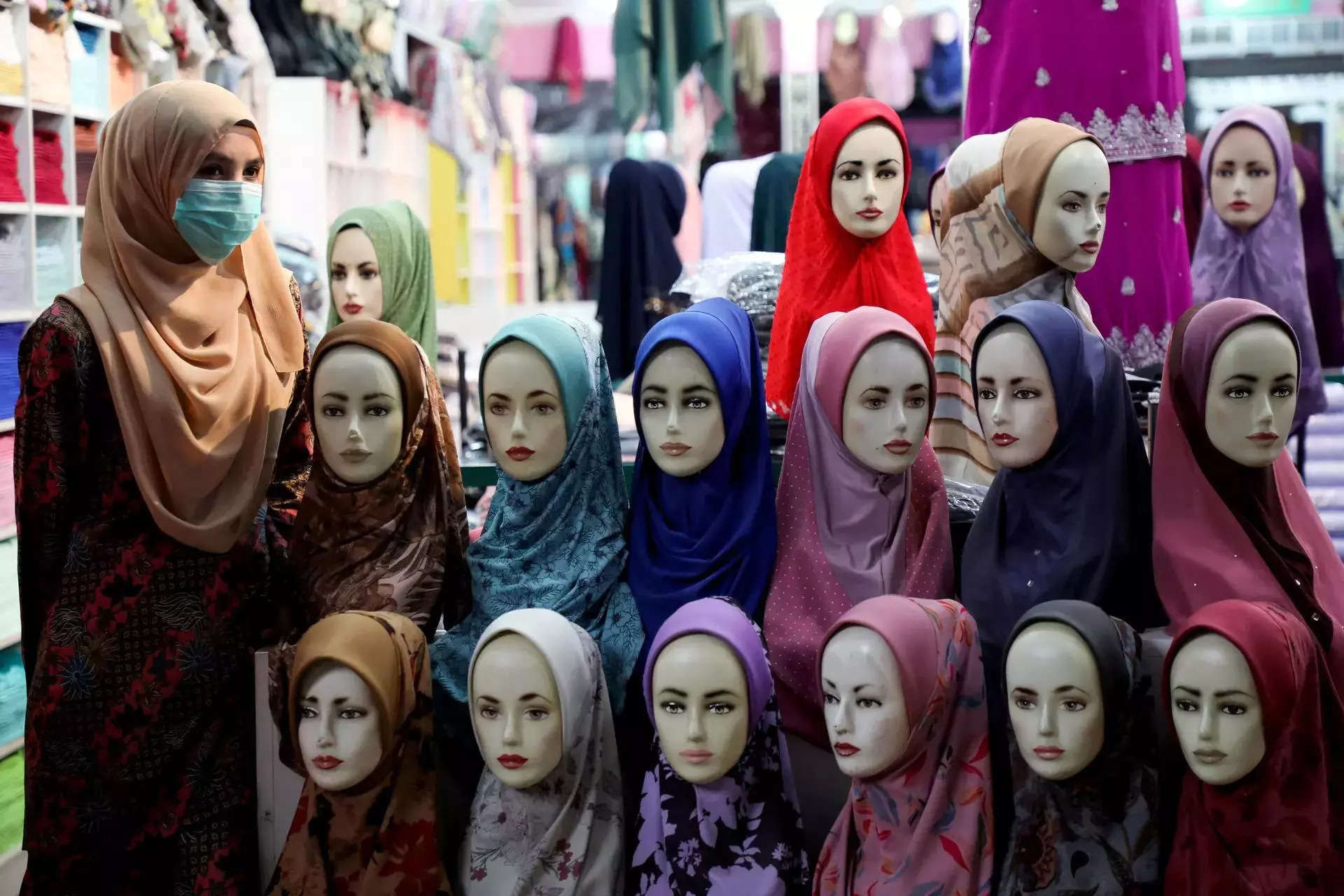 | What- The top European Union court ruled on Tuesday that public authorities in member states can prohibit employees from wearing signs of religious belief, such as the hijab, in the latest decision on an issue that has divided Europe for years.
How it came up- The case came to the Court of Justice of the European Union (CJEU) after an employee of the eastern Belgian municipality of Ans was told she could not wear an Islamic head scarf at work.
- The municipality subsequently changed its terms of employment to require its employees to observe strict neutrality by not wearing overt signs of religious or ideological belief.
- The woman concerned launched a legal challenge, saying her right to freedom of religion had been infringed.
A global political issue- The hijab, the traditional head scarf worn around the head and shoulders, has been a divisive issue across Europe for years.
- It has also been a political issue in several West Asian nations.
- In India too, a big controversy over Hijab took place last year.
What the EU court says- The CJEU said a policy of strict neutrality that was intended to establish a neutral administrative environment may be regarded as being objectively justified by a legitimate aim.
- It added that another public administration would also be justified if it decided to authorise, in a general and indiscriminate manner, the wearing of visible signs of belief.
- The court said authorities in member states had a margin of discretion in designing the neutrality of public service they intended to promote.
- However, this objective must be pursued in a consistent and systematic manner and measures must be limited to what is strictly necessary, the court said.
- It is for a national court to verify that these requirements are complied with.
| |
|
|
| Answer To NEWS IN CLUES |  | Jignesh Mevani. An Ahmedabad court on Tuesday acquitted Congress legislator Jignesh Mevani, who is also a popular Dalit leader, and six others in a 2016 case registered against them under charges of unlawful assembly and rioting. They were accused of damaging a police vehicle and rioting while being taken to a stadium under detention for organising a protest in the city in support of sanitation workers of the Ahmedabad Municipal Corporation. Mevani was yet to become an MLA then but had already come to prominence as an activist.
COURTESY : TIMES TOP 10 |
|
No comments:
Post a Comment